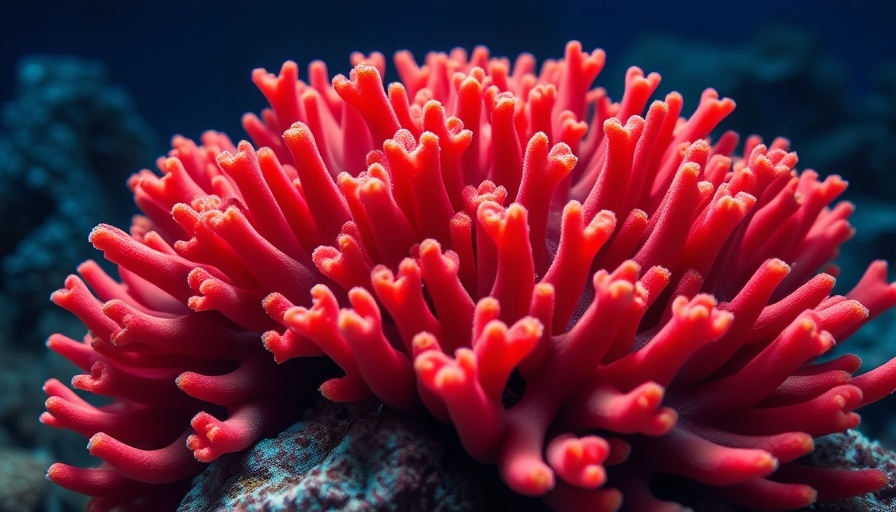
Redefining Coral Reef Research Through Inclusion
The delicate ecosystems of coral reefs are not just a national concern but a global treasure, essential for biodiversity and the livelihoods of millions. However, a troubling report emphasizes that research concerning these vital regions is overwhelmingly led by institutions in wealthy countries, sidelining the valuable perspectives of local scientists working directly in tropical areas. This disconnect is detrimental, as the communities that feel the most significant impacts of coral reef decline often lack representation in discussions that shape the discourse around environmental conservation.
The Uneven Distribution of Research Roles
Cassandra Roch, a marine scientist at King Abdullah University of Science and Technology, highlights the fissures in coral reef research that leave out low-income tropical nations. "The countries not contributing significantly to greenhouse emissions are excluded or marginalized from the research landscape," she stated. This inequity becomes particularly aggravating when juxtaposed against the harsh realities these regions face, such as coral bleaching exacerbated by climate change.
Community Engagement: The Key to Effective Research
Local researchers and stakeholders often have insights that foreign scientists may overlook, leading to what some call 'parachute' research—where outside researchers collect data without collaborating meaningfully with local communities. Estradivari, a marine researcher from the Leibniz Centre for Tropical Marine Research, noted that foreign scholars frequently publish papers and exit without involving local scientists: "It's a one-way interaction that does not consider the lived experiences and knowledge of local populations. This is not just a disservice to science; it’s a betrayal of the coral reefs' future."
Global Consequences of Scientific Disconnection
The ramifications of this exclusion are far-reaching. A 2021 paper in Frontiers in Marine Science highlighted systemic biases in marine research, particularly in coral ecosystems. Women and scientists from the Global South often find themselves at a disadvantage, hindering an essential convergence of diverse perspectives that could bolster coral reef resilience in an age of increasing environmental threats.
The Call for Structural Change in Research Approaches
There is an urgent need for structural changes in how coral reef research is conducted. A commentary published in NPJ Ocean Sustainability emphasized the need for empowering tropical communities—the 'tropical majority'—to lead and participate in their environmental governance. Incorporating local knowledge not only aids in better ecological understanding but also fosters a sense of ownership and responsibility towards coral health and sustainability.
Moving Towards Equity in Ocean Governance
Realigning research priorities not only benefits scientific outcomes but also creates pathways to sustainable development. By fostering equitable partnerships and harnessing local knowledge, research efforts can become more impactful. This shift could ultimately lead to innovative solutions for climate change and coral protection that resonate with communities most affected.
Implications for Environmental Policies
Incorporating the voices of local scientists can lay a robust foundation for sustainable practices, urging a circular economy and contributing to a global fight against climate change. When communities are educated and involved, they adopt eco-friendly practices like sustainable agriculture and waste management, which further contribute to the conservation of coral reefs. This is a clear call for the scientific community to prioritize socially responsible research efforts that ensure a future for coral reefs—and, by extension, humanity.
Conclusion: Why Collaborative Science Matters
The power of collaborative science hinges on the mutual benefits derived from shared knowledge. A future where coral reef research prioritizes inclusivity and recognizes the contributions of local researchers is not just ideal; it's essential. By nurturing equitable research practices, we can create a sustainable future for both coral reefs and the diverse ecosystems they support.
If you're passionate about fostering sustainable solutions and contributing to real change, consider supporting initiatives aimed at promoting equitable research practices in your community. Your actions matter in creating a seaworthy future for coral reefs.
 Add Row
Add Row  Add
Add 



Write A Comment